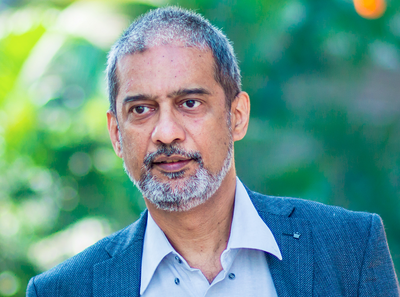Digital Disruption or Digital Black Money?
Dr. Anupam Saraph, Professor and Future Designer will give a talk on digital disruption and digital black money on January 30, 2017 at the Centre for Internet & Society (CIS) office in Bangalore.
The digital disruption of payments in the economy is regarded as a magic wand to cure financial exclusion, reduce costs of cash, and end money laundering and black money. At the centre of the digital revolution are new mechanisms to on-board customers, undertake money transfers, alteration of players in the payment ecosystem and a significant change in regulatory oversight. Does this alteration of the financial ecosystem result in serving the unserved and underserved? Does going cashless and holding digital cash end black money, money laundering, and financial exclusion? Or is this actually generating digital black money through digital money laundering and actually causing financial exclusion? Is digital black money even possible? Does the digital money have no colour?

Dr. Anupam Saraph
Anupam Saraph is a Professor of Systems, Governance and Decision Sciences, Environmental Systems and Business he mentors students and teaches systems, information systems, environmental systems and sustainable development at universities in Europe, Asia and the Americas. He has worked with the Rensselaer Polytechnic Institute, Rijksuniversitiet Groningen, RIVM, University of Edinburgh, Resource Use Institute, Systems Research Institute among others. He was also the Governance and IT Advisor to former Goa Chief Minister Manohar Parrikar. Dr. Saraph has also served as the Vice Chairman of the Infotech Corporation of Goa, held CxO level positions and serves as an independent director on the boards of Public and Private Sector companies and NGOs including the Moneylife Foundation.
Dr. Saraph is also actively engaged in civil society where he participates in several environmental, resource and nature conservation initiatives, has authored draft legislations for river and natural resource conservation, right to good governance and has contributed to governance, election and democratic reforms. Dr. Saraph is a regular columnist in newspapers and writes on issues of governance, future design, technology and education from a systems perspective.
As a future designer and recognized as a global expert on complex systems he helps individuals and organisations understand and design the future of their worlds. Together they address the toughest challenges, accomplish missions and achieve business goals. He also supports building capacity to address the challenges of today as well as to build future designs through teams and effective leadership. Since the eighties Dr. Saraph has modeled complex systems of cities, countries, regions and even the planet. His models have been awarded internationally and even placed in 10-year permanent exhibitions.
Dr Saraph works with business and government executives, civil society leaders, politicians, generals, civil servants, police, trade unionists, community activists, United Nations and ASEAN officials, judges, writers, media, architects, designers, technologists, scientists, entrepreneurs, board members and business leaders of small, mid and large single and trans-national companies, religious leaders and artists across a dozen countries and various industry sectors to help them and their organisations succeed in their missions. He advises the World Economic Forum through its Global Agenda Council for Complex Systems and the Club of Rome, Indian National Association as a founder life member.
Dr Saraph holds a PhD in designing sustainable systems from the faculty of Mathematics and Natural Sciences of the Rijksuniversiteit Groningen, the Netherlands.

